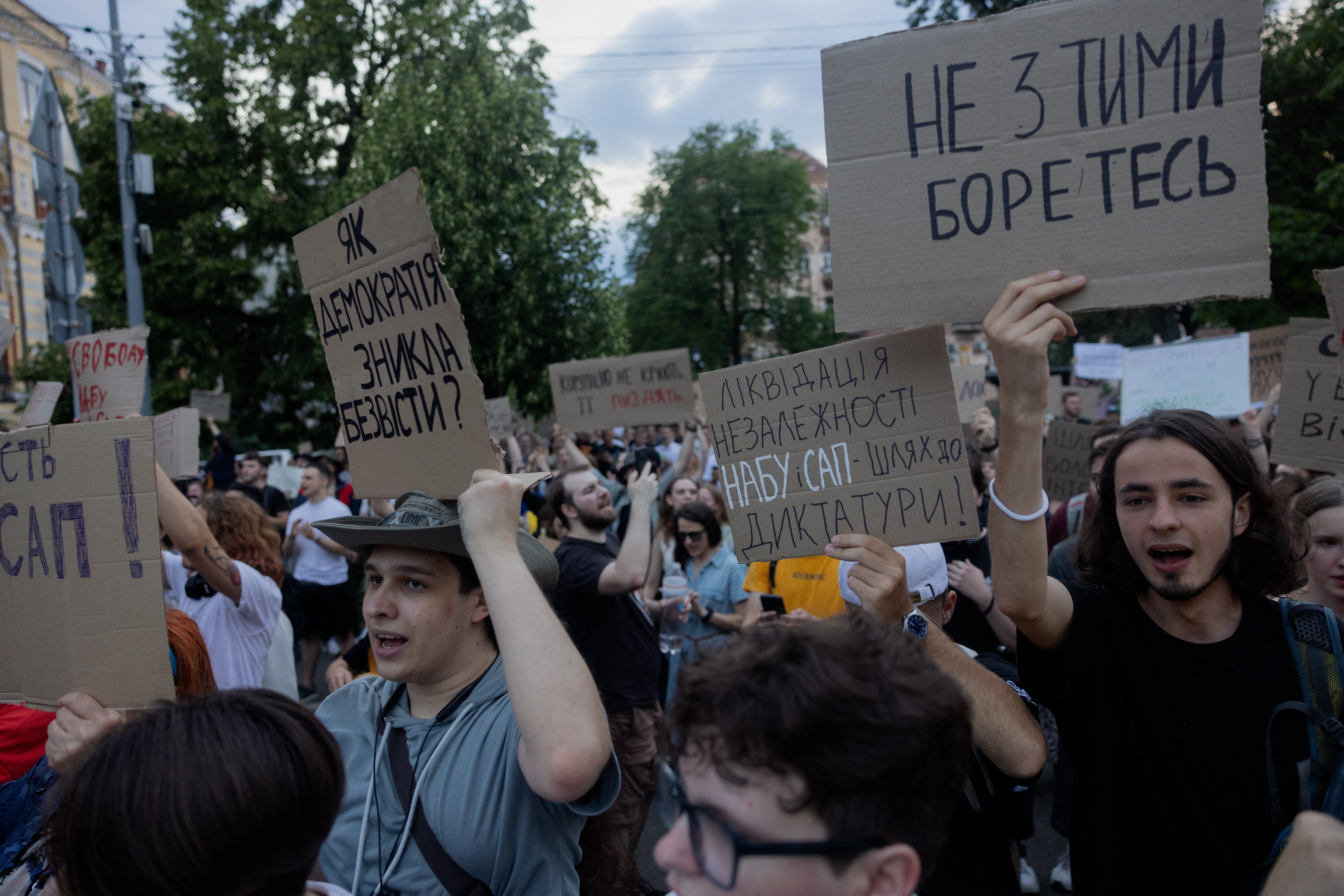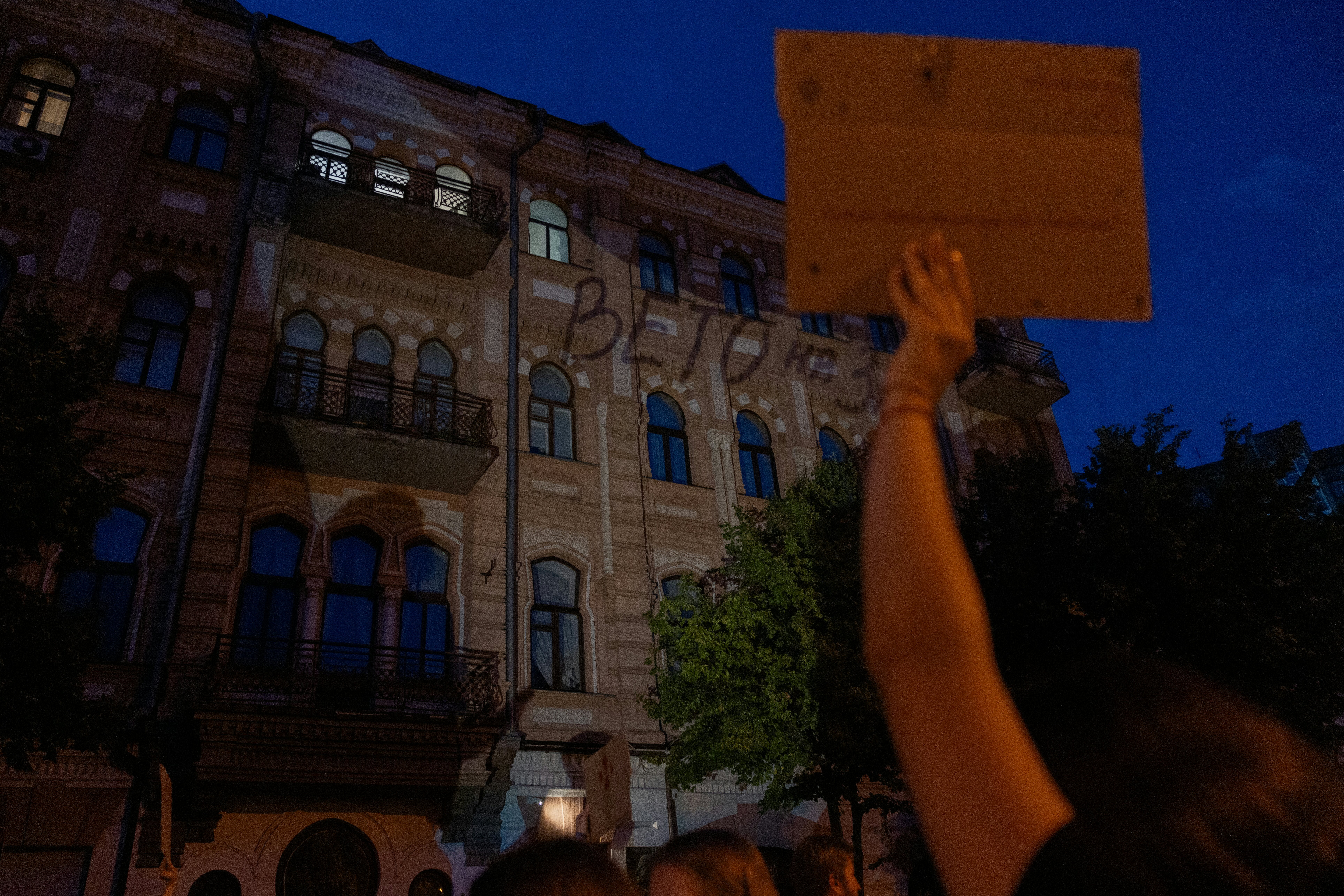Protests in Ukraine after Zelensky approves bill weakening anti-corruption bodies

Hundreds of people gathered in Ukraine’s capital Kyiv to lodge their protest with the Volodymyr Zelensky’s administration for passing a controversial bill tightening restrictions on its anti-corruption agencies, presenting the war-hit nation with its biggest domestic turmoil since the Russian invasion in February 2022.
Ukraine’s parliament on Tuesday passed amendments to allow the country’s general prosecutor, appointed by the president, strict control over two anti-corruption bodies – the National Anti-Corruption Bureau of Ukraine (Nabu) and the Specialised Anti-Corruption Prosecutor’s Office (Sapo).
President Zelensky, whose party holds a majority in parliament, approved the amendments late on Tuesday. The changes would allow the general prosecutor to transfer cases from the agencies and reassign prosecutors.
The move has alarmed the country as this could result in granting more power to Ukraine’s chief prosecutor Ruslan Kravchenko, also seen as a Zelensky loyalist, to reassign corruption probes to investigators of their preference.
Shortly after the bill was cleared in parliament, hundreds of people gathered in Kyiv carried placards to protest. Protests also broke out in other cities like Dnipro, Lviv and Odesa.
“We chose Europe, not autocracy,” read one placard by a demonstrator. Another read: “My father did not die for this.”

The vote was denounced on social media as a betrayal of Ukraine’s decade-long geopolitical ambition. The protests echoed the long-standing sentiment of fighting corruption in Ukraine as critical to erasing a legacy of Russian rule.
Vladyslava Kirstyuk, 18, said memories of her childhood in occupied eastern Ukraine, after Russia’s covert invasion in 2014, left a strong impression.
“I know what it means for one person to have all the power, when nothing is transparent and everything is working against you,” she said. “I don’t want it to be the same for us here.”

Mr Zelensky also said he had spoken to Nabu chief Semen Kryvonos and other top prosecutors.
Mr Kryvonos had urged the Ukrainian president to not sign the fast-tracked bill, which he called an attempt to “destroy” Ukraine’s anti-corruption infrastructure.
The two agencies – Nabu and Sapo were set up in the country after the 2014 Maidan revolution toppled a pro-Russian president and set Kyiv on a Western course. They are credited for their work to tackle corruption and graft in Ukraine during the war, levelling charges against lawmakers, ministers and a former deputy head of Zelensky’s administration.
“Last week, we ran an editorial warning of an anti-democratic backslide in Ukraine. Today, it’s happening in plain sight. This isn’t what our people have been fighting and dying for, and it’s devastatingly unfair to them,” said Olga Rudenko, the chief editor of Ukrainian publication The Kyiv Independent.
Ukraine is also facing backlash from anti-graft campaigners who have been alarmed since the government charged a top anti-corruption activist this month with fraud and evading military service. The move has been dubbed as political retribution by authorities for exposing corrupt officials.
Rooting out endemic corruption and graft is critical for Ukraine to join the European Union and also a key condition to receive western aid at a time the country is battered by war.
The European Union enlargement commissioner Marta Kos said she was “seriously concerned” by Tuesday’s vote.
“The dismantling of key safeguards protecting NABU’s independence is a serious step back,” she said, adding that rule of law was at “the very centre” of EU accession talks.
